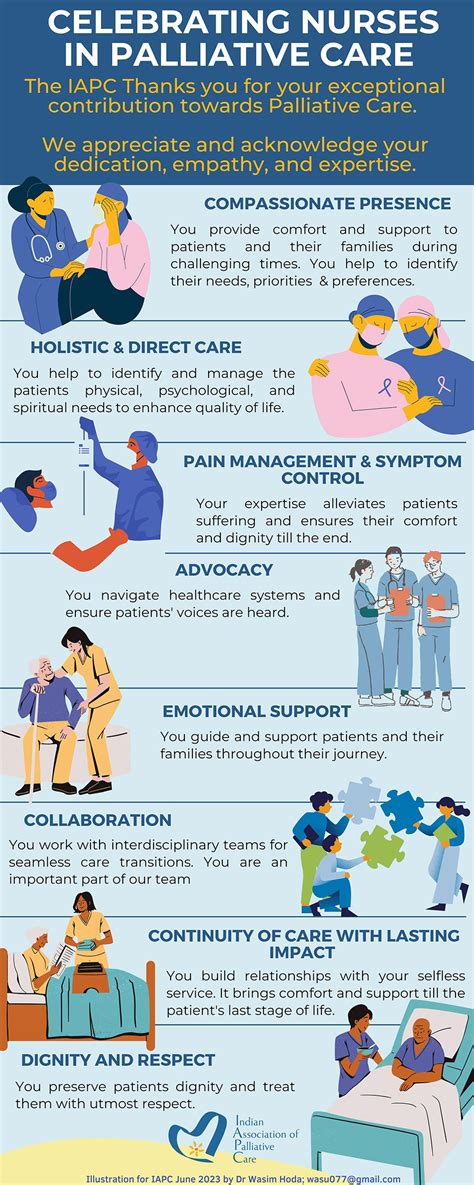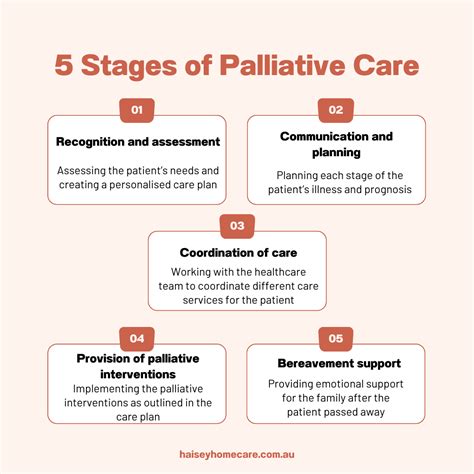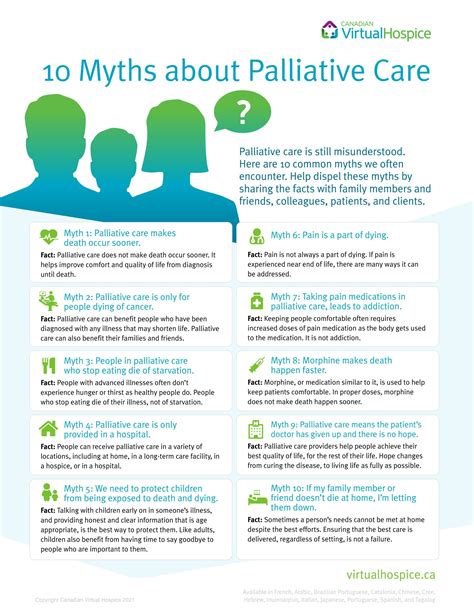Intro
Discover the transformative power of palliative care, a holistic approach to alleviating suffering and improving quality of life for individuals with serious illnesses. Learn how palliative care teams provide physical, emotional, and spiritual support, and explore its benefits in managing chronic pain, symptoms, and stress, enhancing patient-centered care and overall well-being.
Palliative care is a type of medical care that focuses on relieving the symptoms, pain, and stress of a serious illness, rather than curing the illness itself. It is a comprehensive approach to care that aims to improve the quality of life for patients and their families, regardless of the stage of their illness. Palliative care is often misunderstood as being only for patients who are nearing the end of life, but it can be beneficial for anyone with a serious illness, at any stage.

Palliative care is provided by a team of healthcare professionals, including doctors, nurses, social workers, and spiritual care providers. This team works together to address the physical, emotional, social, and spiritual needs of patients and their families. Palliative care can be provided in a variety of settings, including hospitals, clinics, nursing homes, and even in patients' own homes.
Benefits of Palliative Care
Palliative care has been shown to have numerous benefits for patients and their families. Some of the benefits include:
- Relief from pain and other distressing symptoms
- Improved quality of life
- Increased patient and family satisfaction with care
- Reduced hospital readmissions
- Improved communication and coordination of care
- Increased support for patients and families during difficult times

How Palliative Care Works
Palliative care is typically provided by a team of healthcare professionals who work together to assess and address the needs of patients and their families. This team may include:
- Doctors and nurses who specialize in palliative care
- Social workers who provide emotional and practical support
- Spiritual care providers who offer spiritual support and guidance
- Therapists who provide physical, occupational, and speech therapy
- Pharmacists who help manage medications and symptoms
The palliative care team works with patients and their families to develop a personalized care plan that addresses their unique needs and goals. This plan may include:
- Pain and symptom management
- Emotional and spiritual support
- Practical support with daily activities
- Coordination of care with other healthcare providers
- Advance care planning and end-of-life care

Who Can Benefit from Palliative Care?
Palliative care is not just for patients who are nearing the end of life. It can be beneficial for anyone with a serious illness, at any stage. Some examples of patients who may benefit from palliative care include:
- Patients with cancer
- Patients with heart failure
- Patients with chronic obstructive pulmonary disease (COPD)
- Patients with kidney disease
- Patients with neurological diseases such as Alzheimer's or Parkinson's

How to Access Palliative Care
Palliative care is typically provided by hospitals, clinics, and healthcare organizations. Patients and families can ask their healthcare provider about palliative care options and how to access them. Some questions to ask include:
- What palliative care services are available?
- Who will provide my palliative care?
- How will my palliative care team communicate with me and my family?
- What support services are available for my family and caregivers?

Common Misconceptions about Palliative Care
There are several common misconceptions about palliative care that can prevent patients and families from accessing this valuable service. Some of these misconceptions include:
- Palliative care is only for patients who are dying
- Palliative care means giving up on curative treatments
- Palliative care is only for patients with cancer
- Palliative care is not covered by insurance

Conclusion
Palliative care is a valuable service that can improve the quality of life for patients and their families. It is not just for patients who are nearing the end of life, but can be beneficial for anyone with a serious illness, at any stage. By understanding what palliative care is and how it works, patients and families can make informed decisions about their care and access the support they need.
What is palliative care?
+Palliative care is a type of medical care that focuses on relieving the symptoms, pain, and stress of a serious illness, rather than curing the illness itself.
Who can benefit from palliative care?
+Palliative care can be beneficial for anyone with a serious illness, at any stage. This includes patients with cancer, heart failure, COPD, kidney disease, and neurological diseases such as Alzheimer's or Parkinson's.
How do I access palliative care?
+Palliative care is typically provided by hospitals, clinics, and healthcare organizations. Patients and families can ask their healthcare provider about palliative care options and how to access them.
